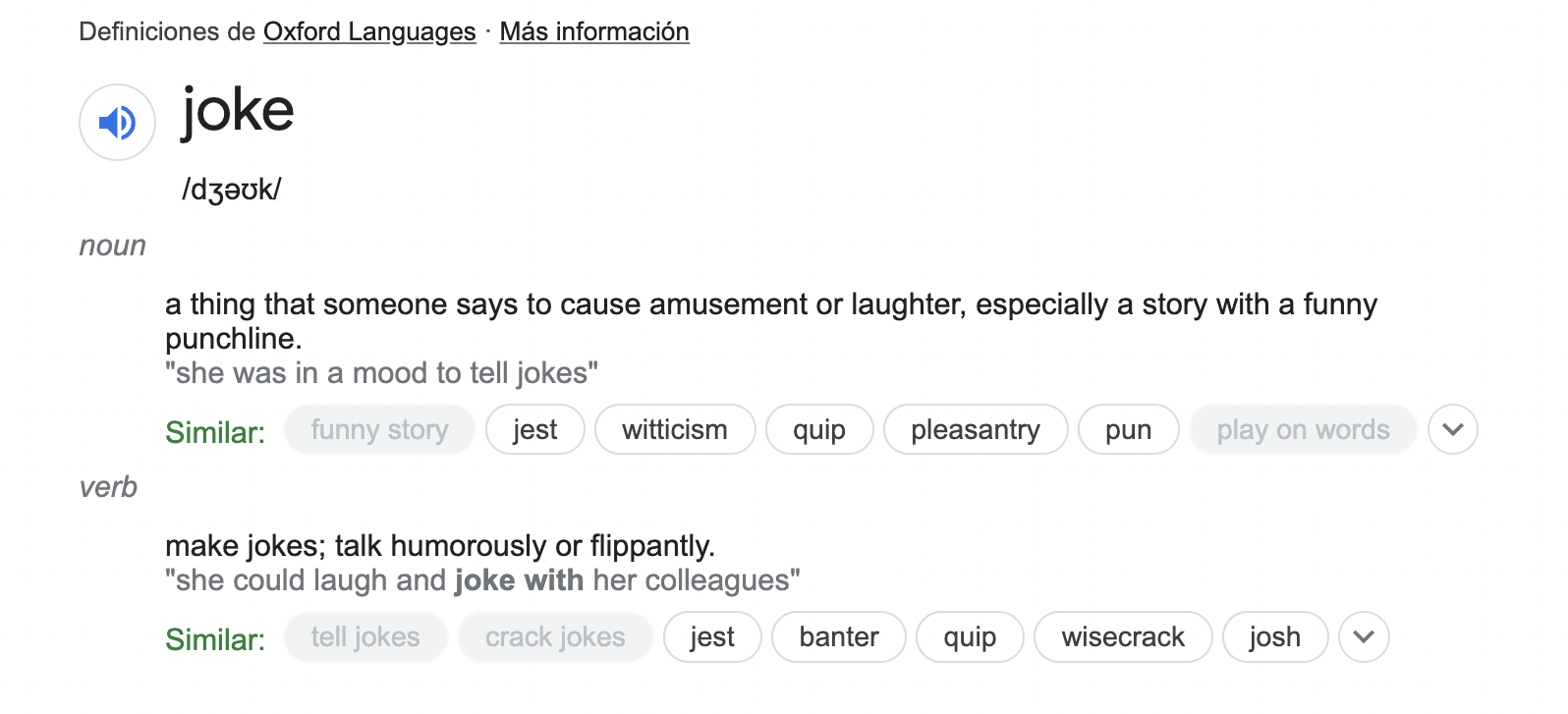Acting for an Employee in English

Workers of the world, you have nothing to lose except, your shackles.
— Karl Marx


Start Here Let's break this into 4 parts.
Seminar
1
History of Work
What is a pun?
US vs UK English
General Employment Vocabulary
Seminar
2
Acting for an Employee
Know Your Rights
Are you joking?
Telecommuting
Seminar
3
Acting for an Employer
Hiring Vocabulary
How to Document Behavior
How to Avoid Getting Sued
Seminar
4
The Future of Work
Diversity
Work Jokes
Labor Contracts
Let’s Get Started!


In our glorious fight for civil rights, we must guard against being fooled by false slogans, such as ‘right-to-work.’ It provides no ‘rights’ and no ‘works.’ Its purpose is to destroy labor unions and the freedom of collective bargaining…. We demand this fraud be stopped.
— Martin Luther King Jr.
Know Your Rights
It is impossible to define workers rights in one single definition. However the International Labor Organization (ILO) has identified key areas that are called fundamental principles and rights at work. These principles have been integrated into United States trade law, as well as other countries.
ILO International Labor Organization
Working Conditions
OSHA
The principal legislation in the United States that governs workplace conditions is the Fair Labor Standards Act, which is enforced by the Department of Labor’s Wage and Hour Division, and the Occupational Safety and Health Act, enforced by the Occupational Safety and Health Administration.
Every worker should enjoy decent, safe and proper working conditions. The US State Department defines acceptable conditions of work as: the establishment and maintenance of mechanisms, adapted to national conditions, that provide for minimum working standards, that is: wages that provide a decent living for workers and their families; working hours that do not exceed 48 hours per week, with a full 24-hour day of rest; a specified number of annual paid leave days; and minimum conditions for the protection of the safety and health of workers.
Non-discrimination
Discrimination in the workplace on the basis of race, color, religion, sex, political opinion, national or social origin, and other grounds can create significant obstacles to actively participating in the labor force and obtaining decent work opportunities. Breaking down these barriers begins with the adoption and implementation of strong anti-discrimination labor laws, coupled with awareness-raising and equal access to education and training.
By promoting effective methods and sharing best practices in international dialogues on eliminating workplace discrimination, we strive to increase the labor force participation and improve the work environment of groups vulnerable to discrimination.
Freedom of Association & Collective Bargaining
Freedom of association is the right of workers and employers to organize to defend their interests, including for the purpose of negotiating salaries, benefits, and other conditions of work. It is a fundamental right that underpins democratic representation and governance.
Collective bargaining is an essential element of freedom of association. It helps to ensure that workers and employers have an equal voice in negotiations and provides workers the opportunity to seek to improve their living and working conditions. Effective recognition of the right to collective bargaining can contribute to economic development and growth by increasing certainty and stability in the workplace and improving labor-management relations.
The ILO’s recommendations and conventions help define these rights and provide guidance on how they can be most effectively protected. The ILO’s fundamental convention on freedom of association (No. 87, adopted in 1948) says that workers and employers alike have the right to:
- establish and join organizations of their own choosing without previous authorization;
and that these organizations have the right to:
- draw up their own rules, elect their own representatives, and organize their programs and activities freely;
- not be dissolved or suspended by administrative authority; and
- establish and join federations and confederations, which may in turn affiliate with international organizations of workers and employers.
The ILO’s fundamental convention on the right to organize and collective bargaining (No. 98, adopted in 1949) says that:
- workers shall be protected against acts of anti-union discrimination;
- workers’ and employers’ organizations shall be protected against acts of interference by each other; and
- governments shall encourage and promote voluntary collective bargaining to regulate terms and conditions of employment.
Elimination of Forced Labor
The International Labor Organization’s Forced Labor Convention defines forced labor as work performed against a person’s will, under the threat of some form of penalty.
Forced labor takes many forms. Some victims are born into slavery, which still exists in some parts of the world. Some are trafficked. Some get trapped in endless debt through fraudulent job recruitment schemes or unreasonable pay deductions. Some are confined to workplaces through various forms of physical and psychological coercion.
Abolishment of Child Labor
Child labor is work that interferes with the physical and mental development of children. This work also often interferes with children’s opportunities to attend school fully or requires them to dropout of school entirely. There are still 168 million children working worldwide, 85 million in hazardous work. ILO Convention 182 on the Worst Forms of Child Labor calls on the global community, as a matter of urgency, to eradicate the use of children under 18 years of age in all forms of slavery, commercial sexual exploitation, illicit activities, and hazardous work that is likely to harm their health, safety or morals.


What is a Joke? Puns v. Jokes
The word pun and the word joke both exist; they are both nouns; they are both verbs. They have different meanings in the different parts of speech and we will take a further look down below. A tip to help improve your English is to learn all of the vocabulary in the jokes and puns, since the words have double meanings, therefore you can expand your communication skills.

Verbs:
To make jokes, talk humorously with the intention to make people laugh.
Nouns:
A joke is just an amusing story.



Let's have some pun (with punch lines)! (Get it?)
What it a Punchline?
A punchline is the final part of a joke, story, pun, or poem which adds a humor or surprise element to your presentation.

Labor!
Labor!
Labor!
My wife told me I should weigh the pros and cons first.
They were strike anywhere.
Noun
a labor
This is a countable non-countable noun. This generally means something physically difficult and hard.
Physical labor
Forced labor
Verb
to labor
As a verb, labor is generally understood as a difficult task, or something related to manual efforts.
Adjective
labor
Very frequent use of job.
The Labor Board
Labor Day
Labor groups

Work!
Work!
Work!
A Civil Serpent.
I said it must be my weekend immune system.
Noun
a work
This is accountable and uncountable noun, and is often related to arts and performance.
A dramatic work
A literary work
Verb
to work
As a verb, this is the most common and has several meanings. Use this verb if you are unsure.
Adjective
work / working
Very frequent use of job.
Work ethic
Work schedule
Working conditions

Job!
Job!
Job!
My memory has gotten so bad it has actually caused me to lose my job. I’m still employed.
I just can’t remember where.
It’s funny that even the headhunter couldn’t find a job for my musician friend.
Maybe it’s because he isn’t note-worthy.
Noun
a job
This is a countable noun and is by far the most frequent use of the term job.
A good job
A part-time job
Verb
to job
DO NOT USE
As a verb, job has several meanings that do not directly relate with the work employment idea. Try to avoid using job as a verb.
Adjective
job
Very frequent use of job.
A job interview
A job application
Job security

Just for the lawyer …
Some people say the glass is half full. Some people say the glass is half empty.
Lawyers say the glass is twice as big as necessary.


Key Takeaways
- A pun doesn’t have to be funny.
- Jokes should be amusing.
- Use jokes and puns to expand your vocabulary.
Workers’ rights should be a central focus of development.
Joseph Stiglitz
Shop safe with Amazon. Our affiliate partner brings us the top resources, meanwhile allowing us to keep confidence and make shopping safe for everyone.
Statistics on how many employees telecommuted before/during the Pandemic?
• 69% of U.S. employees worked remotely at the peak of the pandemic.
• 5.7 million employees (4.1% of the U.S. employee workforce) telecommuted half-time or more before the pandemic.
• Regular telecommuting grew 216% between 2005 and 2019, more than 11 times faster than the rest of the workforce (which grew 20%) and 54 times faster than the self-employed population (which grew by 4%).

Telecommuting How it saved (changed) the world.
Although these terms are often confused, and used interchangeably, telework is defined as a replacement or substitution of technology rather than travel. On the other hand telecommuting is more specifically defined as the replacement of technology for commuter trips.
Therefore, if a person took their work home after being at the office it would be considered telework, but not telecommuting.
And finally, if somebody changes their mind in the morning and decides not to drive to work, they would be telecommuting, but not necessarily teleworking.
Both terms were coined by Jack Nilles in the 1970s.
Nowadays, many people and organizations are moving away from both the term telework and telecommuting in favor of remote work, work-from-home, distributed work, mobile work, smart working (UK). The term “hybrid-remote”, meaning a mix of onsite and remote work, is gaining in popularity as is “work anywhere”, which means allowing employees to work wherever they want.
Which term do you prefer?
telework
telecommuting
remote work
work-from-home
distributed work
mobile work
smart working
hybrid-remote
work anywhere

Statistics about how many employees want to telecommute
82% of U.S. employees want to work remotely at least once a week when the pandemic is over. On average, they would prefer to do so half of the time.
Only 8% do not want to work from home at any frequency. Nineteen percent said they would like to telecommute full-time. The balance would prefer to work a hybrid-remote schedule.
• If they were not allowed to work remotely after the pandemic: 54% of U.S. employees say they would stay with their employer but be less willing to go the extra mile and 46% would look for another job
• Only 12% of federal employees say they would not want to work from home at least some of the time
• 35% of employees would change jobs for the opportunity to work remotely full time (47% of Millennials and 31% of boomers); 37% would do so to work remotely some of the time (50% of Millennials and 33% of Boomers)
• Flexibility is one of the highest-ranked benefits by Millennials, even higher than student loans or tuition reimbursement. It ranked high for Boomers too although the percentages were 15-20 points lower.
• More than a third of workers would take a pay cut of up to 5% in exchange for the option to work remotely at least some of the time; a quarter would take a 10% pay cut; 20% would take an even greater cut.
Statistics about how many employees could work remotely
• 56% of employees have a job where at least some of what they do could be done remotely.
• 62% of employees say they could work remotely.
• Prior to the pandemic, the majority of office space utilization surveys showed people were not at their desks 50-60% of the time; they were already mobile.

UK vs. US Which is better?
There are many differences between the UK and the US English first is the pronunciation, second is the spelling and the third is the vocabulary. Today we will explore vocabulary and in the following seminars, spelling and pronunciation.

UK
US

a flat
an apartment
a company
a corporation
1 : a body formed and authorized by law to act as a single person although constituted by one or more persons and legally endowed with various rights and duties including the capacity of succession
a lorry
a truck
1 : an automotive truck used especially for transporting freight
to sack
to fire
1 : INFORMAL : to remove from position or service. FORMAL : to dismiss
to make redundant
to lay off
1 : discharge a worker temporarily or permanently because of a shortage of work
to go on holiday
to go on vacation
1 : to take time away from work or school for leisure and travel
the post
the mail
1 : public system designed to deliver letters and packages

Key Takeaways
- Both terms are correct.
- Consistency is the most important part.
- Every Brit secretly wishes to be American. 😉
About the Author Eric Froiland
Eric is a legal English teacher from the United States and has been based out of Bogota, Colombia for the last 10 years. He is the owner and founder of Legal English Innovation SAS, which is recognized as the top legal English academy in Colombia and is an official Test of Legal English Skills (TOLES) examination center.








